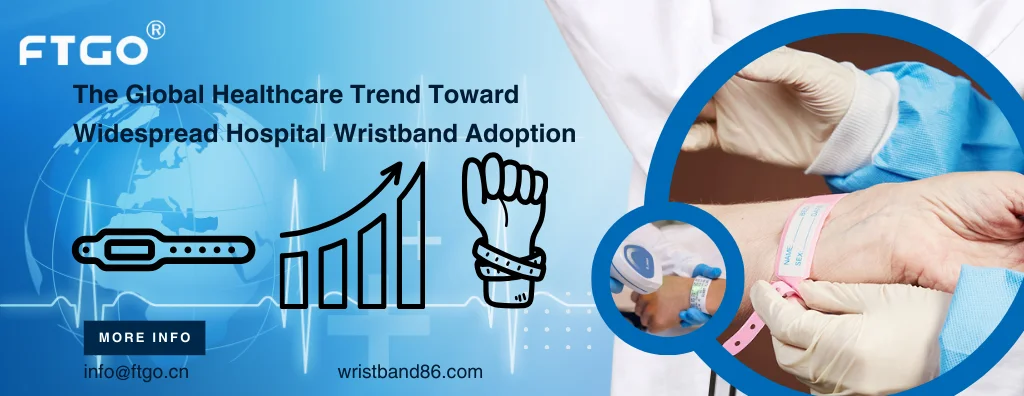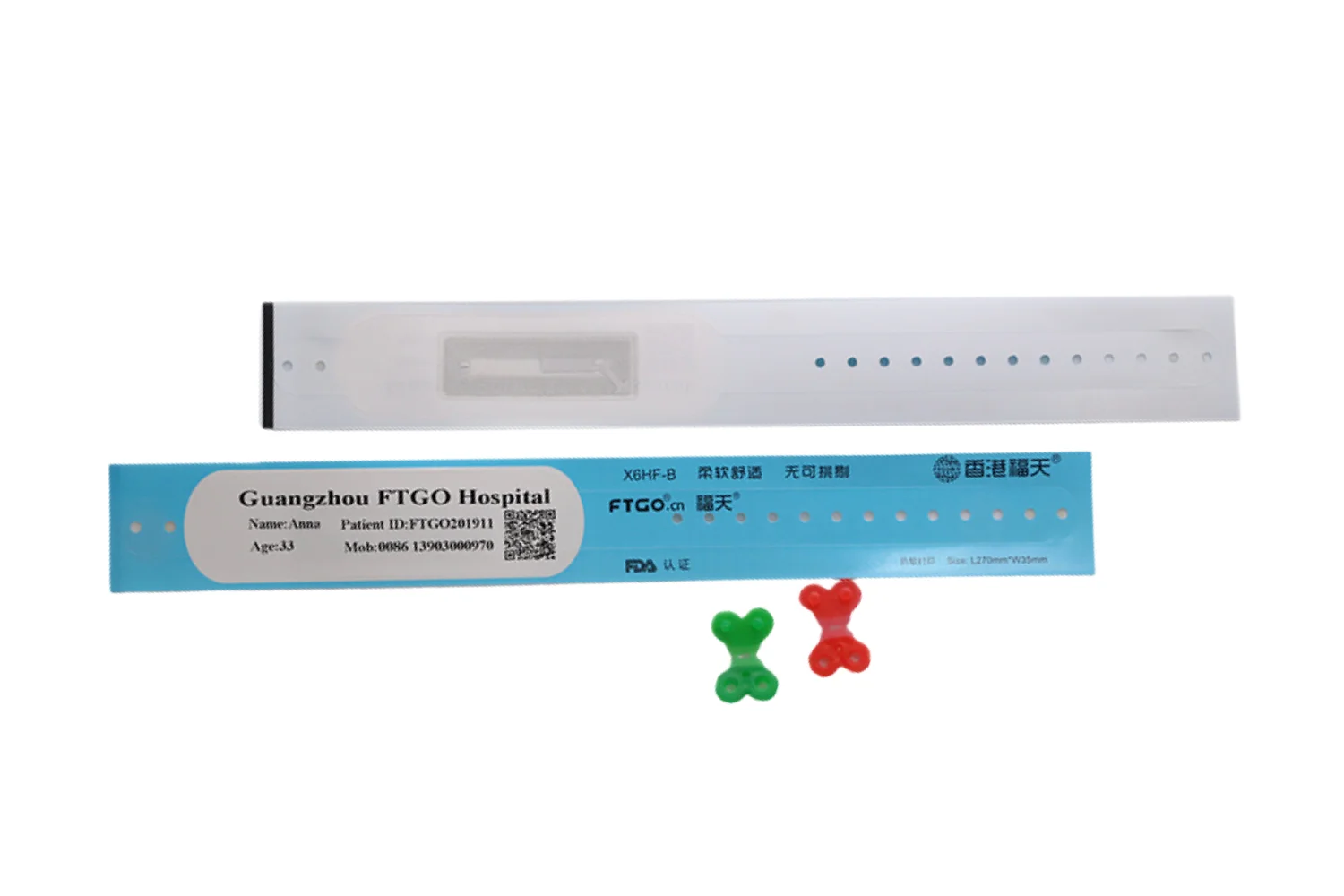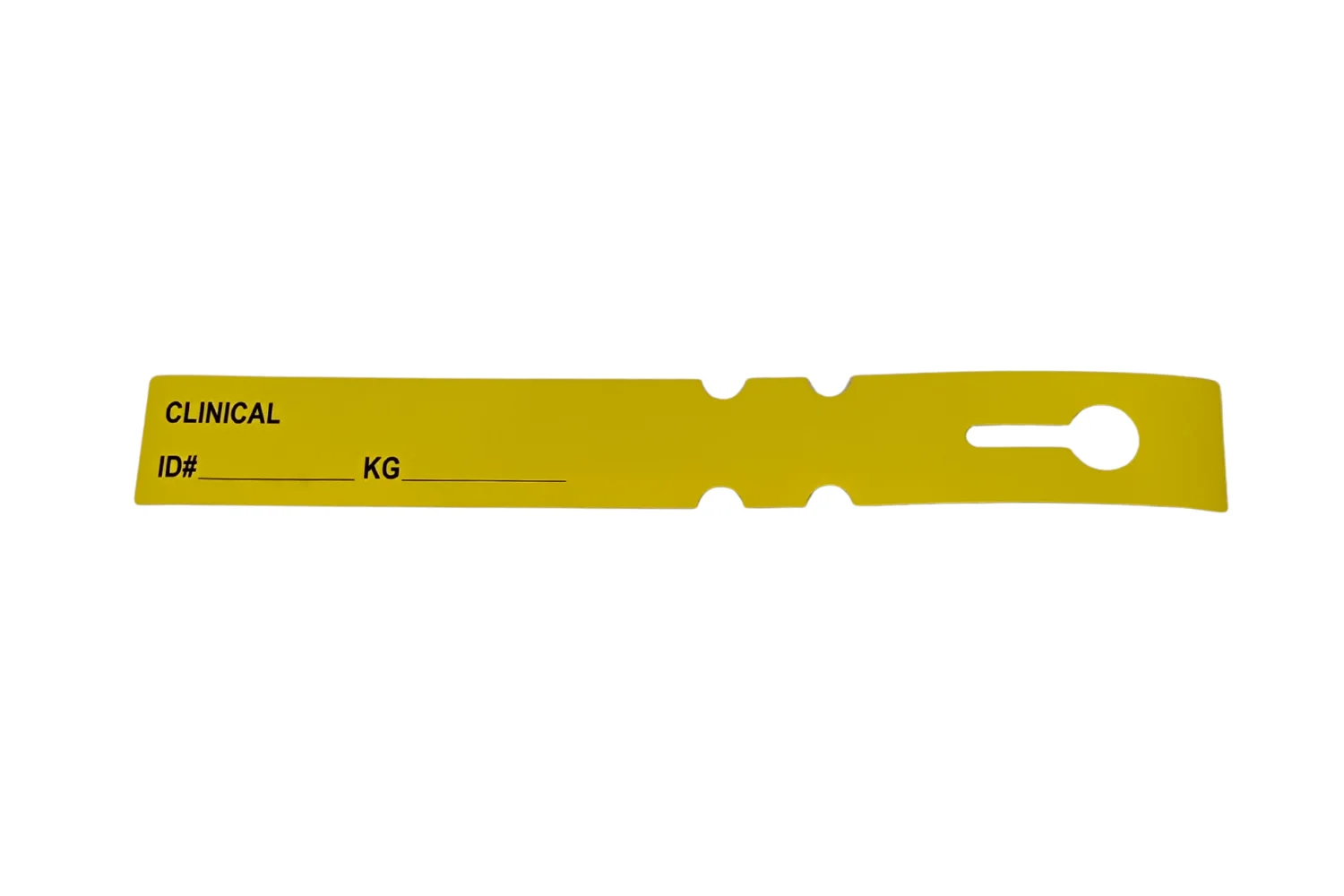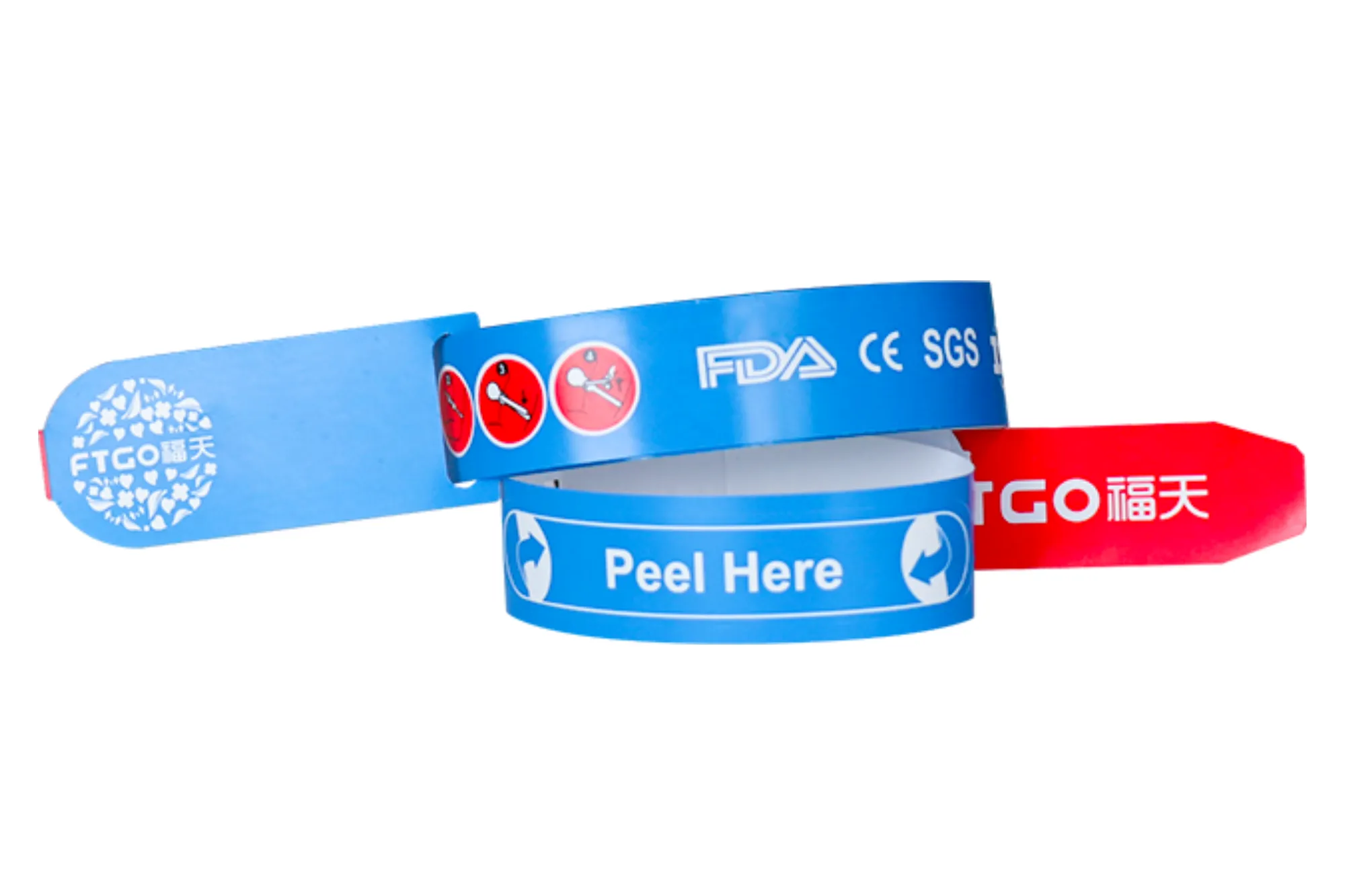The Importance of Hospital Wristbands in Global Healthcare
Introduction
As healthcare systems across the world continue to evolve, there is an increasing emphasis on patient safety, efficiency, and standardization. Among the many consumables used in hospitals, hospital wristbands have become one of the most indispensable tools for ensuring reliable patient identification and streamlined management.
For hospitals, wristbands are no longer optional accessories — they are an operational necessity. For distributors and medical supply companies, wristbands represent an emerging opportunity to expand their portfolio with a high-demand, recurring consumable that plays a central role in modern healthcare.
The Role of Hospital Wristbands in Patient Management
One of the most critical responsibilities of any healthcare provider is ensuring that every patient is accurately identified throughout their hospital stay. Hospital wristbands are at the core of this process.

Preventing errors: By displaying key patient information — such as name, date of birth, medical record number, and admission details — wristbands reduce the risk of misidentification, medication errors, and procedural mistakes.
Seamless integration: Many modern wristbands feature barcodes, QR codes, or RFID chips, allowing hospitals to connect them directly with electronic health records for fast, digital verification.
Improved communication: Wristbands help doctors, nurses, and administrative staff quickly identify patients, ensuring smooth coordination in busy clinical environments.
Simply put, wristbands safeguard both patients and medical professionals by creating a reliable link between identity and care.
Why Hospital Wristbands Are Essential Consumables
Unlike medical equipment that may last years, wristbands are consumables that hospitals cannot operate without.
High turnover: Every new patient requires a wristband upon admission, and many hospitals handle thousands of patients daily.
Single-use compliance: Disposable wristbands ensure hygiene and compliance with infection-control standards.
Global acceptance: From large teaching hospitals to small clinics, wristbands are universally recognized as a non-substitutable tool in patient care.
This consumable nature means hospitals continuously purchase wristbands, creating a stable and predictable demand that is resistant to economic fluctuations.
Opportunities for Distributors and Suppliers
While many distributors focus on high-value medical devices, wristbands remain an often-overlooked product category. However, the market is shifting, and distributors who add wristbands to their portfolio gain several advantages:

Recurring sales potential: Unlike devices purchased once every few years, wristbands are ordered regularly in bulk.
Attractive margins: Low production costs and high turnover rates make wristbands a profitable consumable.
Cross-selling opportunities: Wristbands are often purchased alongside wristband printers, blank labels, and other patient identification tools, allowing distributors to bundle solutions for hospitals.
For distributors looking to expand into healthcare consumables, wristbands represent a high-volume, low-risk growth segment.
Global Healthcare Trends Driving Wristband Adoption
The adoption of hospital wristbands is not limited to developed countries. Around the world, healthcare systems are prioritizing standardization and compliance:

Developed markets (e.g., United States, Europe): Wristbands have long been established as a mandatory part of patient safety protocols.
Emerging markets: Countries in Asia, Africa, and South America are investing heavily in improving their healthcare infrastructure, with wristbands increasingly included in official procurement lists.
Public hospital tenders: In many countries, wristbands are now listed as a required item in public hospital bids, underscoring their importance as a standardized consumable.
This shift highlights how wristbands are transitioning from a supplementary item to a global healthcare standard.
Case Examples and Market Insights
In the United States, patient identification wristbands are mandatory for all admitted patients, often integrated with advanced electronic health record systems.
In Europe, strict patient safety protocols make wristbands essential for compliance with regional healthcare regulations.
In countries like India, Thailand, Bangladesh, and parts of Africa, governments are actively working to strengthen healthcare systems, where hospital wristbands are increasingly included in public procurement and hospital accreditation standards.
Wristbands are now a global healthcare standard — and Southeast Asia is emerging as a high-growth market. Read more in: The Booming Market Potential of Patient Wristbands in Southeast Asia.
These examples illustrate how wristbands are expanding from developed to emerging markets, creating opportunities for global distributors.
Wholesale Hospital Wristbands
Understanding the importance of hospital wristbands, if you are looking to purchase in bulk or become a distributor, we welcome you to connect with us.
Our hospital wristbands are:
- Customizable – supporting printing of patient details, barcodes, or logos
- Comfortable & Soft – designed for long wear without irritation
- Reliable Quality – manufactured with strict standards for consistency and durability
As a professional wristband manufacturer, we provide a comprehensive range of hospital wristbands to meet different healthcare needs. Choosing to wholesale directly from us ensures fair pricing, dependable quality, and full product support compared with other channels.
Conclusion
The role of hospital wristbands in modern healthcare cannot be overstated. They are essential for patient management, crucial for safety, and increasingly recognized as a mandatory consumable in hospitals worldwide.
For hospitals, wristbands are indispensable in ensuring smooth operations and reliable patient identification. For distributors, they represent a new growth opportunity in the healthcare consumables market, particularly as more countries move toward standardized medical practices and include wristbands in public hospital tenders.
As healthcare systems continue to advance, hospital wristbands will remain a non-negotiable part of global healthcare infrastructure — creating value for both patients and businesses alike.
Share this article
Follow us
A quick overview of the topics covered in this article.










